

The 3D printer hums along at high speed, bringing the children's house designs to life. The Huili Hotel's decor is complete and awaits its ‘grand opening’. Inthe exhibition area, a three-dimensional model of the Huili Nursery, crafted from clay, is on display.
These are just a few examples of project-based learning (PBL) happening at Huili Nursery.
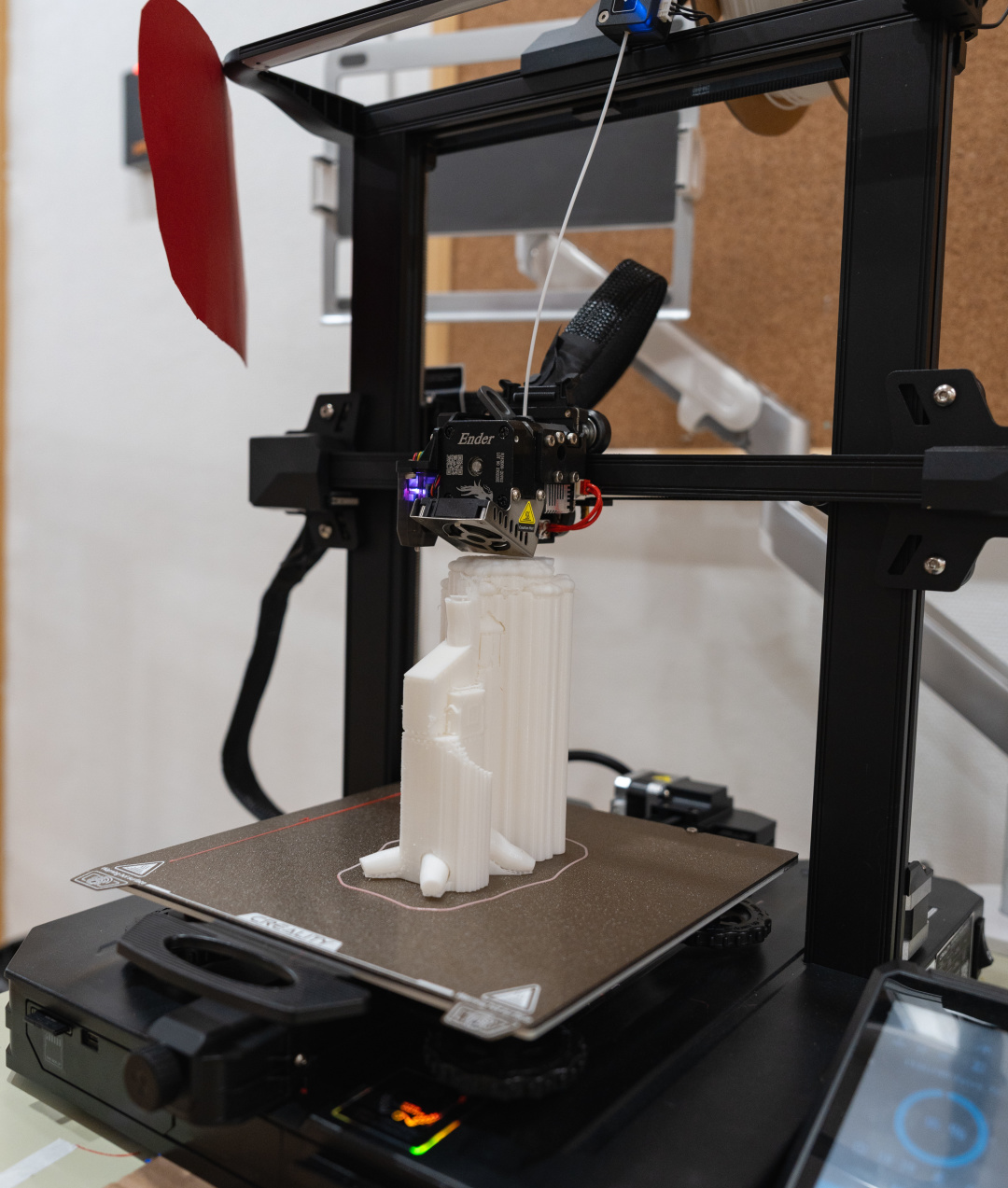
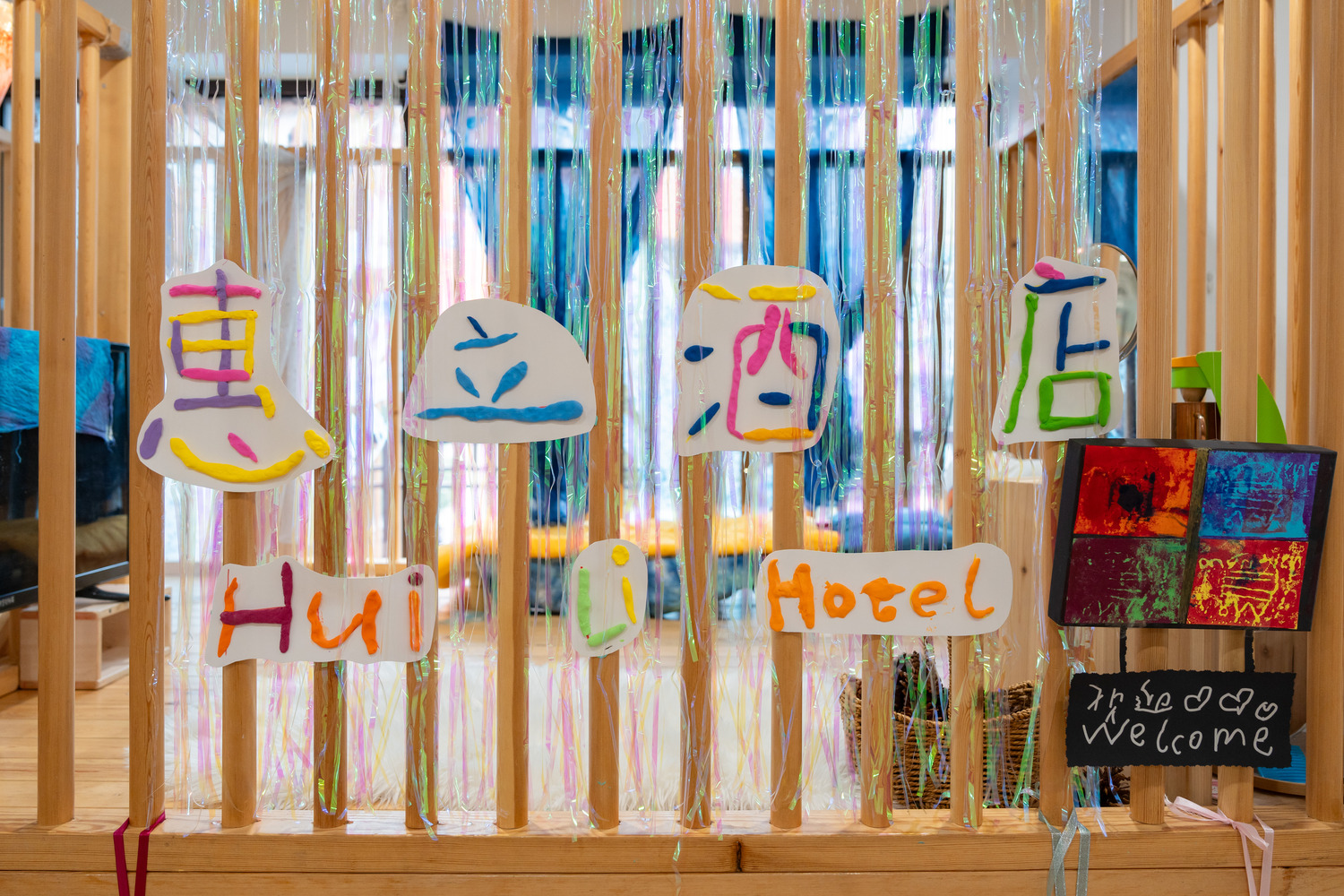
This approach centres on real-world problems, encourages pupils to take charge of their learning and equips pupils with the skills they need to face complex challenges.

Real-world experiences
for real-world learning

The children in EY3 are passionate about role-playing games. They create different scenarios, such as schools, hospitals and supermarkets.
Recently, they began brainstorming a new project in which they would build a hotel.
Observing the children's enthusiasm, their teachers took them to visit a real hotel in Shanghai to learn about how it operates.
As the housekeeping staff taught our EY3 pupils how to fold towels in decorative shapes, they began asking probing questions, like “How many towels are in the room?” and “What are they used for?”
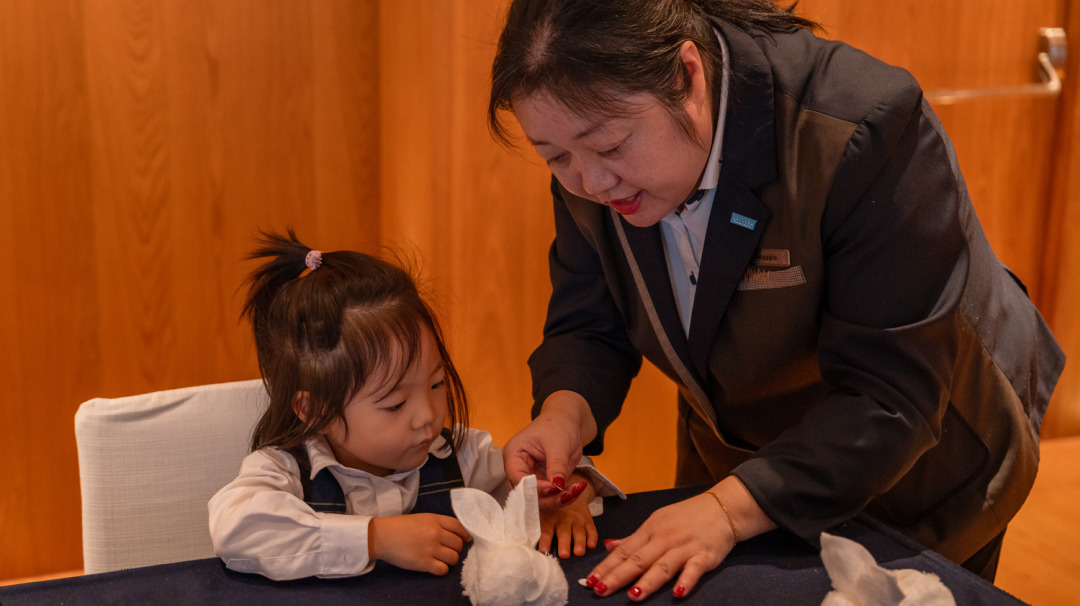
They also learned how hotel security works. One pupil asked, "What does the security guard watch at night?"
The more our pupils learned, the deeper the questions they asked.
The children returned to the Nursery brimming with ideas and ready to put what they learned into practice.
They proposed putting in a small sofa near the hotel’s front desk, so the guests waiting to check in would have a place to rest. They considered whether every room in the hotel needs a safe and how many digits the combination should be. How many digits should the password be? They asked how many towels are needed in the bathroom and what kinds of flowers would make the rooms smell nice. They even considered providing toys for the hotel’s younger guests to play with.
Each was an example of building concrete thinking skills.
▲Children put what they learned into practice

Practical knowledge and skills

Our EY3 pupils were also paid a visit by two officers from the Public Security Bureau.
They taught the children how to use walkie-talkies, seek help when they spot suspicious individuals and escape in case of a fire.
The children also learned basic first-aid skills. These are practical tools and skills with real-world relevance.
Recently, these two ongoing learning projects had a surprising connection. The children built a miniature fire station using waste cardboard boxes at the entrance of the Huili Hotel to protect the safety of its guests.
Thinking, exploring, and hands-on practice are all constantly expanding.

Working together
and solving problems as a team

In early October, EY4 children received a letter from Charlotte Knight-Benjafield, our Executive Head of Early Years. The letter proposed the idea of moving the Nursery and sought the children’s advice on whether it should be moved elsewhere in the city or to the countryside. This sparked a lively debate on urban versus rural life.
They collected information through discussion and interviews. After interviewing teachers and staff at the nursery, the children found that most of them longed for rural life. And the ‘Huili Nursery in the countryside’ project began.
How to draw a floorplan
Deputy Bursar Ms Faye Li came to the class to explain how to draw a floorplan.
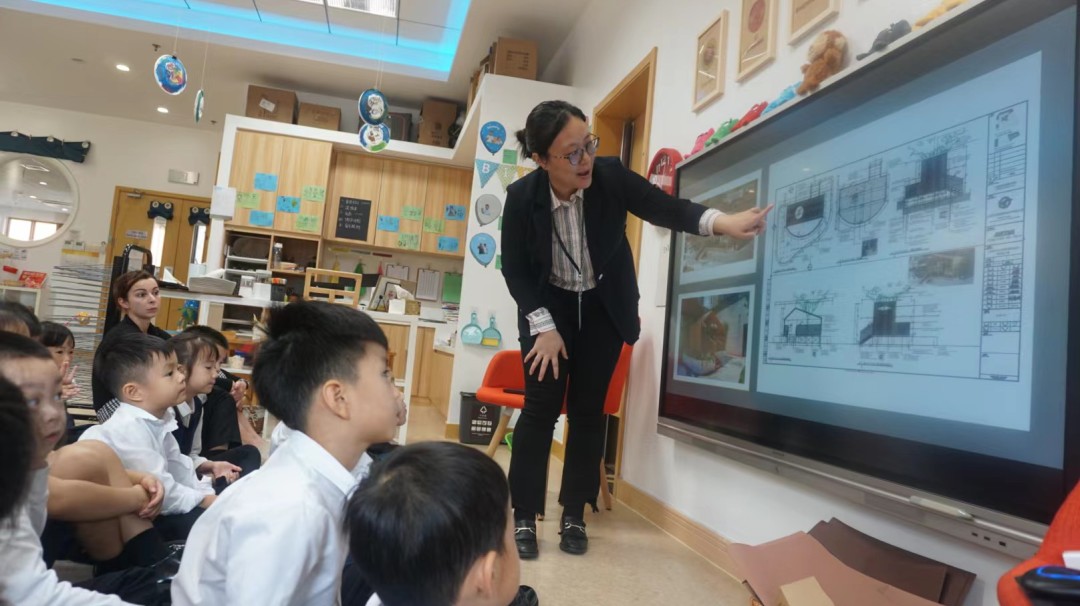
Finding tools
Huili parents also brought items that could be found on construction sites.
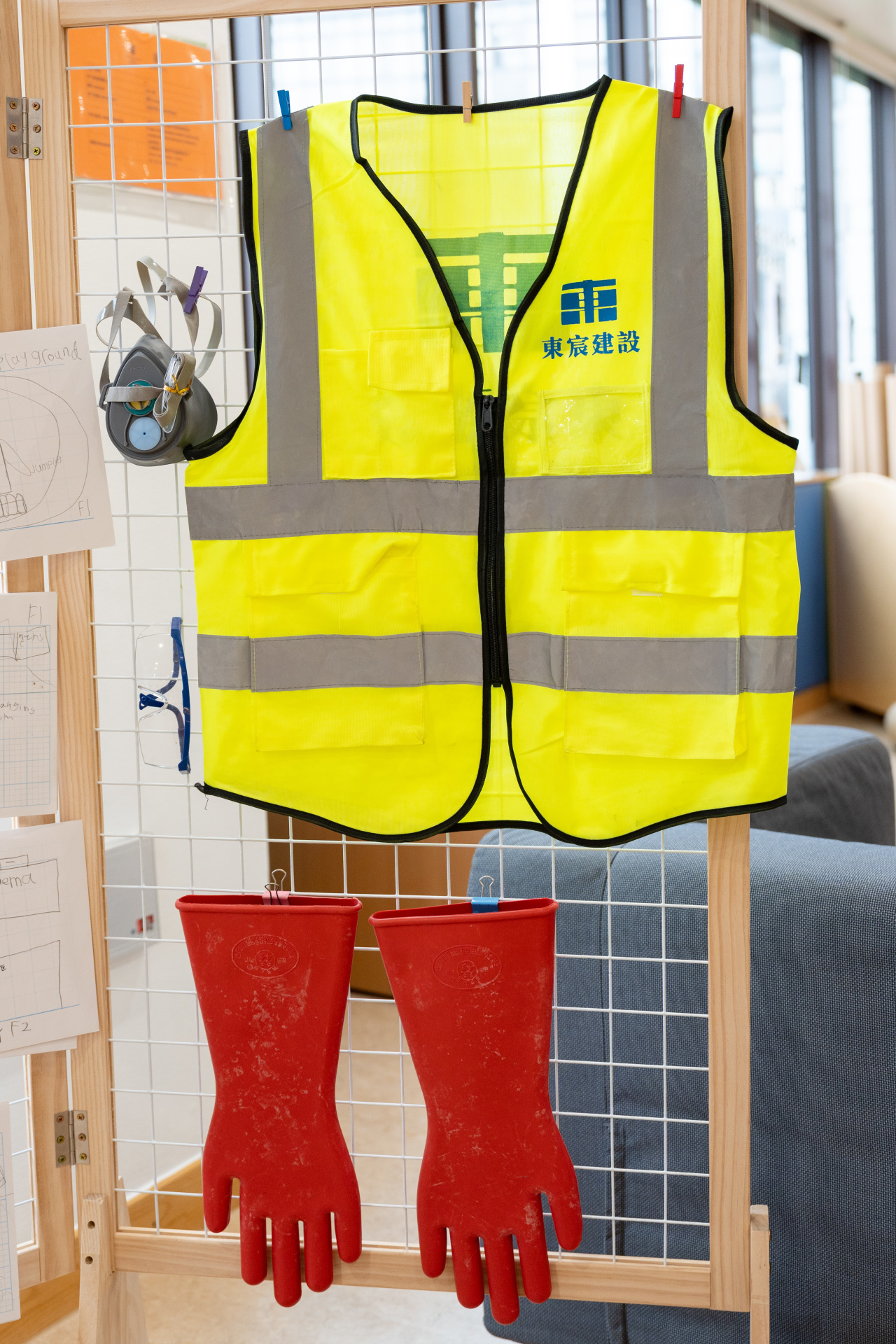

Simulating the construction
After completing the floor plan, the children simulate the construction using LEGO. They soon discovered many problems that were overlooked in the floor plan, like emergency exit doors that were not up to specifications and a pool with no deepor shallow end.
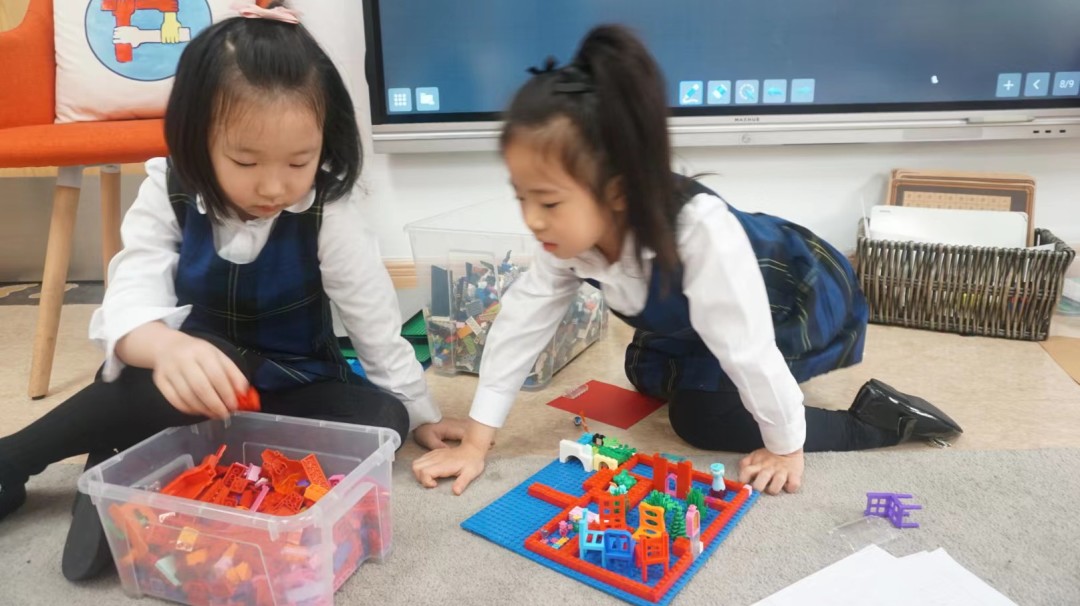
Hands-on exercise
They revisited their design once more and construction resumed.


It was a fully immersive and hands-on exercise in planning, teamwork and problem-solving.
Project-based learning is a valuable opportunity for growth and learning.
It helps our youngest children to develop essential skills that will serve them well in Primary School, Secondary School, university and beyond.
More importantly, it instils in our children the curiosity that will make them lifelong learners.